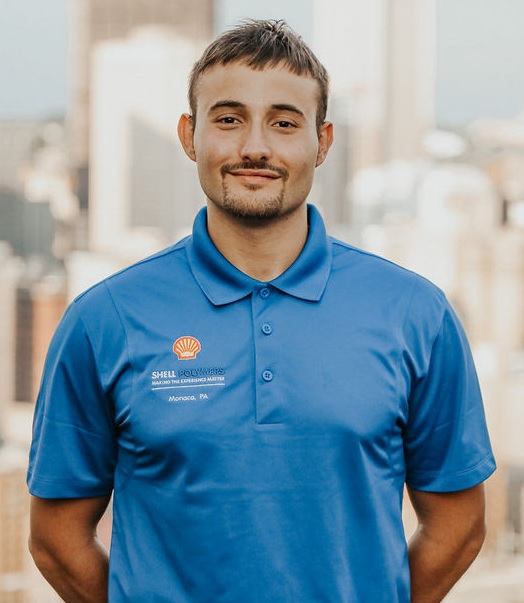Fixed mind-set or learner mind-set—where do you think you are as an environment, health, and safety (EHS) professional? Learn the difference between the fixed and learner mind-sets and how you can develop yourself into a better professional.
-
Fixed mind-set: A fixed mind-set is the belief that one’s qualities, skills, and abilities are fixed traits and cannot be changed. Often, people with a fixed mind-set believe they must look smarter than others or think others will judge them if they ask questions or make a mistake.
- Learner (or growth) mind-set: People with a learner mind-set believe their knowledge, skills, and abilities can grow and develop over time. Continuous improvement is a key indicator of those with a learner mind-set—these types of people believe they can always get better and learn not only from their mistakes but also from the successes of others.
Why Developing a Learner Mind-Set Is Key to the Success of a Safety Professional
The main responsibility of a safety professional is to provide employees with a safe working environment and protect them from serious injury or death. In the workplace, there will always be new hazards, challenges, and situations that arise. Having a fixed mind-set could hold you back from providing new solutions or analyzing situations. There may be times when you do not know how to do a certain task or you don’t know the answer; in these cases, you may avoid the situation completely. You may not think you have the skills or intelligence required to be a useful part of the team, and that can be uncomfortable.
Developing a learner/growth mind-set will allow you to embrace challenges and rid your mind of the belief your qualities and capabilities are static. When you start to break out of the fixed mind-set, you will unlock unlimited potential, begin to develop new skills, and find that you are gaining useful knowledge. With these newly acquired skills and education, you will develop into a more versatile safety professional.
Here are a few quick tips to help you develop a learner mind-set:
- Embrace your weaknesses. Know what you need to improve upon, and develop a plan to close the gaps.
- Use challenges as learning opportunities. Embrace challenges, and use them to learn new things and develop new skills.
- Ask questions. If you don’t know, ASK! Prioritize your learning over the opinions of others. No one will judge you for asking questions.
- Learn from the mistakes and successes of others. Recognize when someone fails, and pay attention to what is done to correct the situation. Also, recognize when someone is successful, and view that situation as an example of what “good” looks like.
- Set goals for yourself. You can always build on your current knowledge, skills, and abilities. When you check one goal off, add a new one in its place.
- Learn how to take criticism—and use it to make yourself better. Receiving criticism can be difficult, but it’s very important you take it for what it’s worth. Do not view it as someone telling you that you’re wrong, but instead, view it as an opportunity to improve.
- Make new learning a priority. The only person responsible for your development is you. Make learning new things a priority, and always continue to improve.
The safety profession is ever-changing, so it is very important that you continue to change—and grow—with it. Whether it be learning a new aspect of safety, developing new skills, or continuing your education, challenge yourself and make it happen!
 Rocco Martini, CSP, OHST, STS, is a Safety Specialist at Shell Polymers in Monaca, Pennsylvania, and a runner-up for a 2021 EHS Daily Advisor Safety Standout Award. Martini possesses strong technical skills in health, safety, security, and environment (HSSE), as well as emergency response planning, which were gained during his 3 years of experience working for Shell at the Pennsylvania Chemicals Project. Martini earned his bachelor’s degree in Safety and Health Management at Slippery Rock University, and he excels in training and developing employees to drive safe work practices and build an unrivaled safety culture. His desire to continuously improve professionally is a core motivational value for him; after recently achieving his Certified Safety Professional (CSP) certification, he now is working toward his master’s degree in business administration (MBA), along with a graduate certificate in environmental management. You can connect with Martini on LinkedIn here. Rocco Martini, CSP, OHST, STS, is a Safety Specialist at Shell Polymers in Monaca, Pennsylvania, and a runner-up for a 2021 EHS Daily Advisor Safety Standout Award. Martini possesses strong technical skills in health, safety, security, and environment (HSSE), as well as emergency response planning, which were gained during his 3 years of experience working for Shell at the Pennsylvania Chemicals Project. Martini earned his bachelor’s degree in Safety and Health Management at Slippery Rock University, and he excels in training and developing employees to drive safe work practices and build an unrivaled safety culture. His desire to continuously improve professionally is a core motivational value for him; after recently achieving his Certified Safety Professional (CSP) certification, he now is working toward his master’s degree in business administration (MBA), along with a graduate certificate in environmental management. You can connect with Martini on LinkedIn here. |

